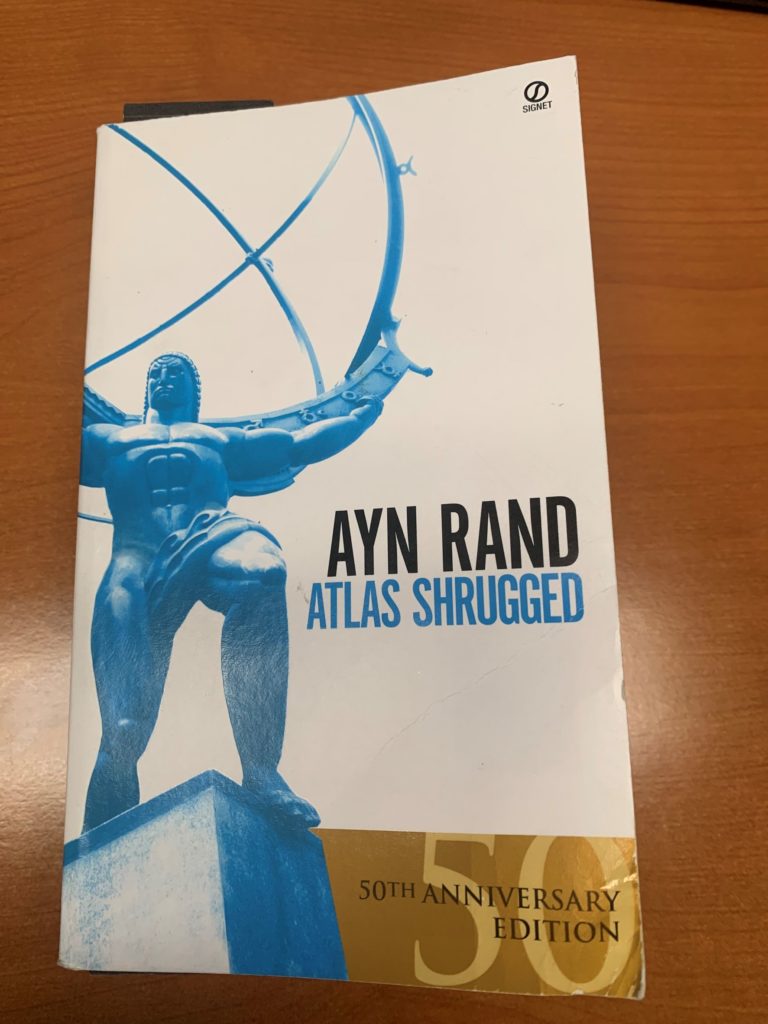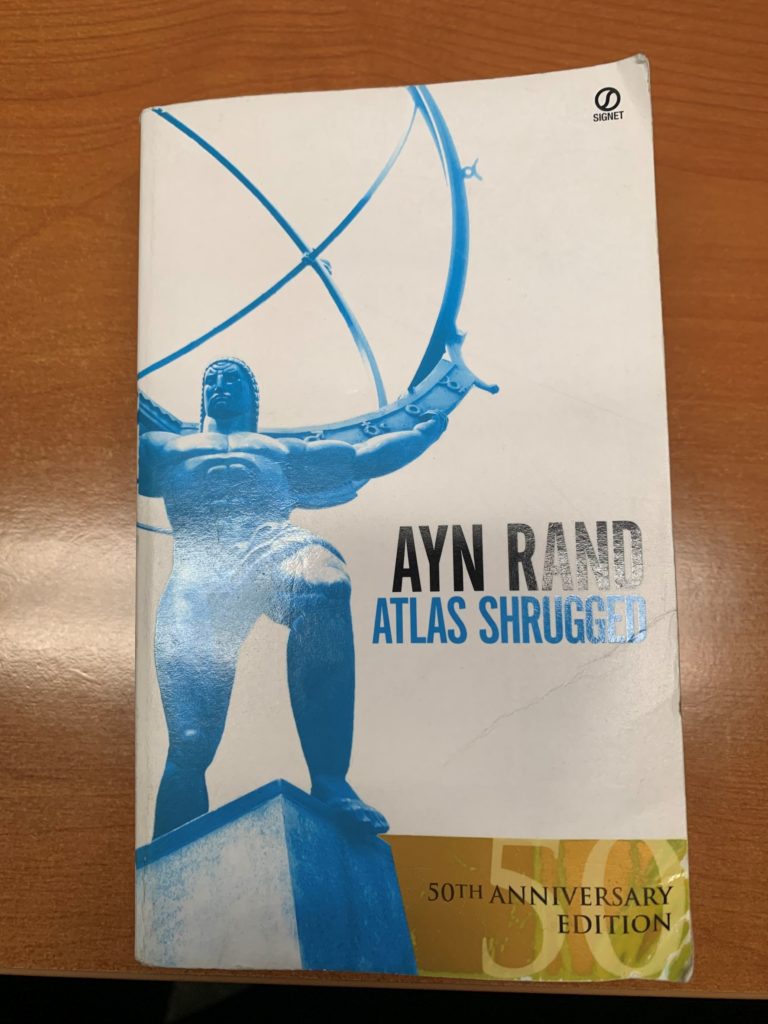It doesn’t look too worse for wear. On the right is what the book looks like now. The original wrinkles in the cover were from when I packed it with me to Spain, in my luggage. I try really hard not to mash up paperbacks. I know… this is kind of their intended purpose but I like nice looking books. I am sure that is not why you tuned in though. So, let’s get into it.


What did we learn from all of this? Ayn Rand, who fled communist Russia in 1925 was an illegal alien. Meaning she got a visa to visit the United States and never left. But, that wasn’t in the book. The part of it that was important was that she had already observed the societal destructiveness of collectivism in just seven years. I think that is why the book was keenly insightful on the ilk living for others.
The one thing that I took away was an interest in Philosophy. I am not exactly sure of what I am going to do with it yet, but to look into it some more. It is not going to supersede my current reading plans, but once I get to a place where I am thinking about what is next.
So, what did I think? That is a complicated question. I was marveled by the parallels of what happened in the book. I was strongly concerned that we are following many aspects of the story page for page. I was annoyed at how long the book was; there was a lot of extraneous details that really didn’t lead to the core of the story. I enjoyed my time reading the book, in general.
I have been asked if this is a must read. I would say that if you like reading, you are into dystopian fiction or classical literature and you either like to validate your own values or you are open to changing your opinions then yes. I don’t give this a must read because I just feel that it is way too long. Something like 1984 that is a couple hundred pages has a lot more impact much quicker. Think of it this way, you could read 1984 easily three times in the same time as Atlas Shrugged.
Since this series has gone on so long, I feel like I have little to say about the overall work remaining. I felt like the ending was a little anticlimactic. The readers are left with little justice as most of the bad guys drive away or are abandoned at the end of the story. Two minor characters blew themselves up in a Mexican standoff and the Galt gang just flies off to Colorado ostensibly to live their best life while the rest of the country is left.
Maybe it is because I am a man, not a woman that I have a hard time identifying with Dabny, the primary character. She is in a three way love square (not triangle). She loves the one she cant have, she has the one she doesn’t fully love but respects and admires and she can’t move beyond the first love. She is portrayed as this very logical person yet cannot make binary commitments required for a proper relationship. If I am being honest, that indecisive love theme of the story irritated me.
One aspect that didn’t play as well was the labor situation. It seems like in the story, every time someone quit a job there was a replacement available. I think that if we have learned anything post-pandemic that is just not true. If people were really dropping out of society at such rates as written, those jobs would not immediately be filled in the real world. And even as low skilled as building or running a railroad might be, people are not going to immediately pick-up where someone left off.
Outside of the agonizingly long story arc, I do believe that Atlas Shrugged was well written. The book itself could almost be timeless because there is very little reference to technology. There is a record player mentioned a couple of times, cars trains and airplanes. What there is not is science fiction gizmos that never came to fruition nor is there science fiction/fantasy tendencies to come up with out of this world names or races or any other thing that is difficult to understand. I suppose what I am really trying to say is that it was written in plain language.
I have read that Atlas Shrugged was supposedly set in the 1990s. Outside of the technology changes that weren’t that different than the 1950s, the timeline is actually pretty spot on. The book supposedly took place over something like a ten year period.
I think that if we look at our history compared to Atlas Shrugged, our collectivism journey really got into gear in the early 2000s. I know we had the war on poverty of the 1960s which largely started the welfare state but it was the combination of the police state with the Patriot Act that has the two interests accelerating the transition.
Really, the pace of Atlas Shrugged was much quicker that what we are seeing in real life. We are now twenty plus years from the Patriot Acts and fifty years of entitlements and we still have not seen the implosion as a result of bad policy. Although we are getting there. I wouldn’t be surprised if another Covid type event split the country.
There are now three books in my liberty series. I am going to rank them 1984 > Atlas Shrugged > A Brave New World. I have already started the next one and I bet that you can guess what it will be. So stay tuned to next week for a new review starting on Friday.
End Your Programming Routine: Despite my criticisms, I am glad that I read this book. It entertained and stimulated me for seven months. That being said, its not one that I will likely ever read again. If I play my cards right, I will have all of these posts to refer back to if the subject comes up again. The next two books are going to be re-reads for me. But, there is something kind of exciting about going on the journey into the unknown like Atlas Shrugged was. This will not be the last we hear from Ayn Rand either, just not in the near future. It’s time for something different.
Recent Comments